As we head into 2025—a year that Pope Francis has declared a Jubilee year for the church—the United States faces a second Trump presidency, leaving many uncertain how immigration, climate change, democracy, LGBTQ+ rights, and more will unfold over the next four years. U.S. Catholic reached out to Catholic organizers and activists across the country to reflect on their hopes and prayers for the nation, what our Catholic faith offers us in this time, and how Catholics can get involved in justice work, being reminded that “hope does not disappoint,” as Pope Francis has said of the Jubilee year.

Joanna Arellano-Gonzalez, Coalition for Spiritual & Public Leadership (CSPL)
Our faith provides a spiritual and moral compass for navigating periods of political unrest and turmoil. It reminds us of our role to collaborate with God and one another to confront injustice and build a more just and loving community. When we understand and practice our faith through a lens of liberation for the poor and oppressed, it becomes a sustainable source of love and action. Jesus modeled for us nonviolent resistance in the face of Roman imperial oppression and domination, and, as Catholics, we are called to do the same, especially in the face of systemic oppressive political and economic injustice.
My deepest prayer has been that the next four years be a reckoning moment for the Catholic Church to step into the prophetic tradition more visibly and publicly. My dream and prayer is that we have thousands and thousands of Catholics in the streets for mass protests against genocide and mass deportations, demanding better jobs, education, and resources. I also pray that this time of extreme polarization offers Catholics more clarity about the true essence of our faith tradition—that this moment transforms us and emboldens us to organize, act, and build loving relationships with one another. We should all echo the prayer in Mary’s Magnificat, “Cast down the mighty, lift up the lowly.”
My advice for Catholics is to get involved with your local community organizing group to connect to the most pressing issues of your area or build a social justice committee at your parish or university. In Chicago, the organization I work with, the Coalition for Spiritual and Public Leadership (CSPL), works with parishes, Catholic universities, and organizations across the region to organize and address issues of injustice to build a more just and fair society. I would also invite Catholics to learn about the prophetic roots of our faith. Books by Walter Brueggemann, Gustavo Gutiérrez, Barbara Holmes, and John Dominic Crossan offer critical perspectives about the prophets, liberation theology, contemplation, and the historical Jesus. Lastly, grounding ourselves in prayer and contemplation is incredibly important to sustain a consistent momentum of spirit-rooted resistance against oppressive policies.
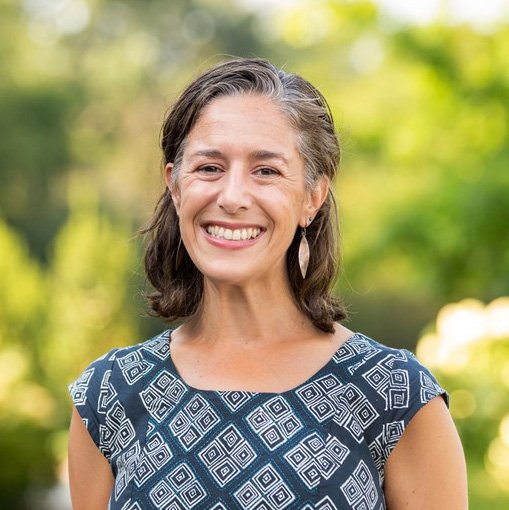
Aimee Shelide Mayer, Catholic Labor Network
One hope I have for the nation is greater solidarity where we work alongside people who are different from us and take on their struggle and sadness and suffering, but also their joy. That’s one reality I have really appreciated in organizing, especially labor organizing. A lot of the greetings that people give each other are, “hi sister, hi brother,” like they’re sisters and brothers in the work of organizing. It’s personal and reminds me of our familial ties as one human family.
I love the history of labor organizing in our country because so many union members were Catholics back in the day. Priests and pastors, in their homilies, had to acknowledge working conditions because so many of the people in the pews were immigrants. They were going to Mass but also dealing with these grave injustices in the workplace. I hope that parishes will be a space to invite people to have conversations about what’s happening in the world.
The verse from Isaiah 9:2 is one that I’ve been sitting with: “The people who walked in darkness have seen a great light.” We’re literally in a time of darkness; the calendar as it is. For a lot of people, with the wars and violence in our world and divisions in our country, it feels like a very dark and heavy time, yet there’s still a light, even if it’s a solitary candle.
In terms of actions people can take, I always encourage people to reach out to a local worker center in their area. A lot of cities have worker centers that are helping many workers with knowing their rights and protecting their rights on the job. They can be workers that happen to be exploited or in unsafe working conditions, often immigrants. Every city has a central labor council that’s part of the state AFL-CIO. And while labor councils and AFL-CIOs are political organizations, they also have great connections with labor organizing, labor training, and opportunities to get involved.
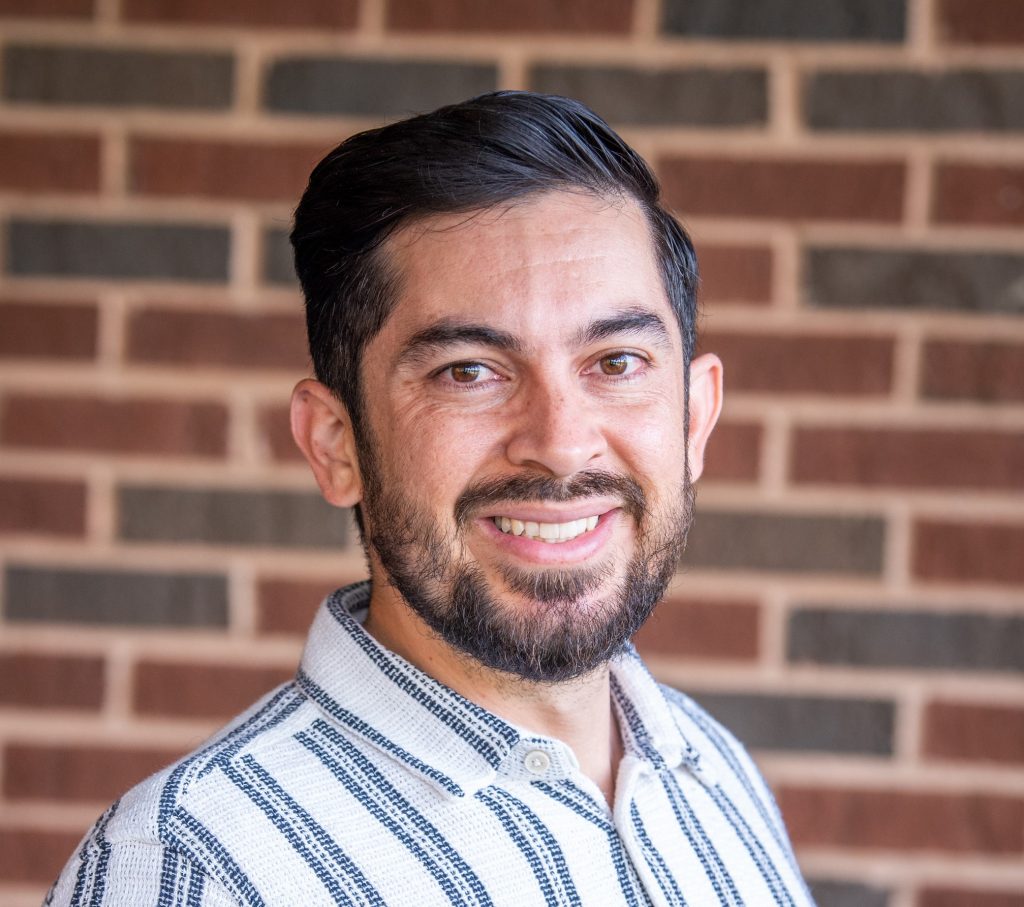
Sergio Lopez, Catholic Relief Services
I know many people of faith who are experiencing deep shock, grief, and righteous anger at the state of our world. Our faith reminds us that there is a blessing that comes to us during times when we weep and mourn (Matt. 5:4). Times such as these are an opportunity for us to experience God’s consolation through prayer and the kindness of others. Our faith also reminds us that we are all pilgrims on a journey of transformation from death to new life. Every experience of dying we encounter during our lifetime prepares us for the final death. These “small” deaths have the potential to lead us to a more meaningful life if we let them.
My prayer for the nation is that every American can experience in their own unique way the good news of the gospel of Jesus Christ which brings glad tidings to the poor, liberty to captives, recovery of sight to the blind, and freedom from all that oppresses.
As we discern what is ours to do in the arduous work of building God’s kingdom on Earth, let us start by cultivating a deeper friendship with God and a deeper friendship with a beloved community of seekers who share our dream for a more just and loving world.
Will Rutt, Intercommunity Peace & Justice Center
I’ve been thinking a lot about, and praying with, the context and reality of empire. I do feel like there’s some need to connect our reality directly with the reality of empire that Jesus was facing. I think that there’s a lot of richness, inspiration, accountability, and wisdom that can be derived from really exploring that reality of Jesus’ context in our context today.
A lot of people are very afraid, worried, and hold a lot of anxiety about what the future holds. They are particularly migrant communities, LGBTQ+ communities, and women, so it’s important for faith communities to really think about what accompaniment looks like in this new moment. How do the values of our community, of our faith, match our actions and commitments? What’s the risk we’re willing to take in a prophetic way?
Crisis, a lot of times, creates clarity. My hope is that, out of the many terrible crises that I anticipate over the next four years, that clarity will provide a pathway for faith communities to step into our values and act. It’s going to require some serious risk. In my experience in the Northwest, the challenge for organizing a lot of times is the unwillingness to risk. We tend to do social action advocacy from a place of comfort, not a place of discomfort. My hope is that our comfort with risk would increase, drawing from the example of Jesus, in terms of all of the risks he continually took and led his community into.
At the core of organizing is the foundation of relationship. What I have witnessed in the election is a massive relationship gap. There are these big misunderstandings of who we are and what we care about and how our values play out in the public space. There’s a lot of labeling going on from both directions about the moral value of someone’s vote and assumptions that people are making about why people are voting the way that they’re voting. For me, that indicates a deep lack of relationship. If folks are looking for ways to dig in and respond, invest in the relationships in your community. Organizing utilizes the practice of one-to-ones and house meetings and listening sessions. But there are lots of other pastoral structures like retreats and ministries where we encounter one another that are built into the core of church life. Folks really need to double down on investing in relationships.
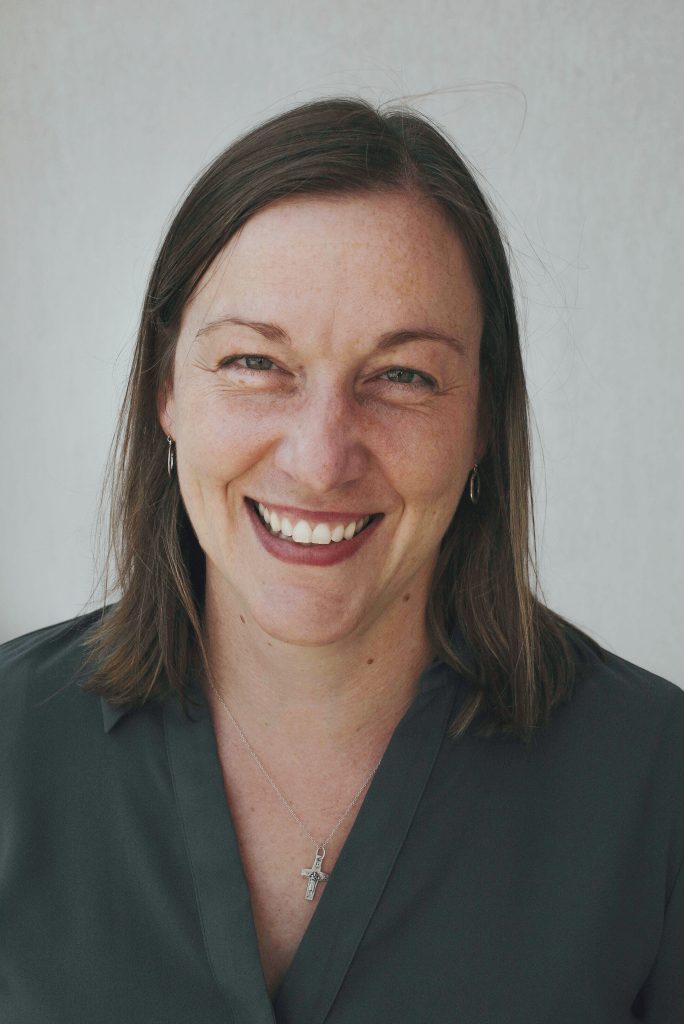
Lisa Amman, Discerning Deacons
As we enter the next four years, my hopes and prayers are centered on embracing God’s love as a guide in our daily lives. I pray our nation keeps striving for unity and understanding, and that we will act to steward the common good and ensure care for the poor, the widow, the orphan, and the stranger, including immigrants and refugees.
In our baptismal call to diakonia, we are to be Christ’s hands, feet, and heart, actively serving others. Pope Francis urges us to counter indifference, greed, and war through love, emphasizing the importance of encountering each other, listening deeply, and discerning God’s will through these connections. We must reach out to those on the margins and engage in courageous conversations, not to debate but to understand.
Lastly, I recommend we set aside time to marvel at the beauty, joy, and love of God and this world, cultivating gratitude and praise. If we only doom scroll, we can become disempowered and discouraged. But as St. Ignatius of Loyola reminds us, “Discouragement is not from God.”
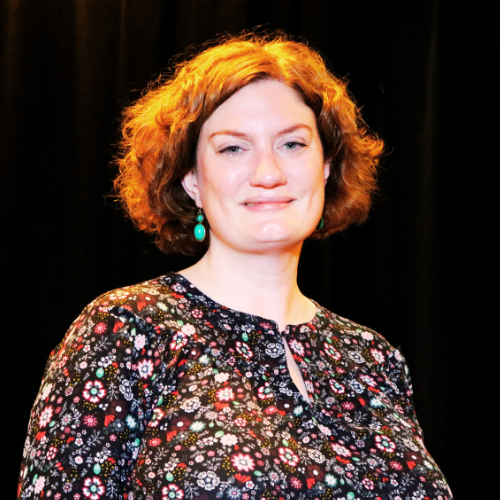
Meg Olson, NETWORK
Our faith offers us a collection of robust social teachings that equip us so beautifully for this moment. I’m thinking particularly about our teaching on the preferential option for the poor, which says economic choices should be measured by whether they enhance or threaten human life, human dignity, and human rights. So, when we see that our lawmakers in Congress are going to vote on a budget proposal that takes food away from the poorest families and health care away from vulnerable senior citizens and close to half of all new mothers, while giving trillions of dollars in tax cuts to billionaires, our faith makes it clear we should act. Depending on the amount of time we have, we call up lawmakers’ offices and tell them to “vote no,” we write and submit letters to the editor to our local papers calling on them to “vote no,” or we gather our friends and meet with their district director and ask them to tell their boss to “vote no.” NETWORK is here to support you in any and all of those actions!
My prayer for this nation is that we fully embrace community, so that we can heal the deep divides that are in some cases killing us. That might mean joining a choir or community garden, volunteering for a ministry at your parish, or simply eschewing Instacart and going to the grocery store. Buying groceries in person provides us opportunities for small encounters like smiling at babies, chatting about the weather with cashiers, or even exchanging recipes with our fellow shoppers—encounters that we lost during the pandemic and haven’t seemed to regain. Sooner or later, those small encounters add up, and we start seeing more and more people as neighbors, as people we care about, as people we consider when we go into the voting booth.
My advice for U.S. Catholic readers is to go find your community and show up! You are not going to build hope being an “armchair activist.” Show up to the house meeting, the vigil, the know your rights training, or the Congressperson’s town hall. These are really hard times—but taking action in community will sustain us so that we can build God’s kin-dom of justice and peace. As Pope Francis says, “Where there is an ‘us’, there begins a revolution.”

Diana Marin, Catholic Climate Covenant
Our faith calls us to both be people of hope and respond to the signs of the times. At Catholic Climate Covenant, we are preparing for a reversal of positive momentum for environmental action under the new presidential administration. But we’re holding onto a long-haul vision of justice. One of the young adults I work with recently said on a call that as faith-based organizers, we’re part of a lineage that knows struggle and holds hope despite all odds. I’m remembering that.
I’m hopeful that 2025 will be a year of increased climate action in Catholic communities. It’s a Jubilee Year, the 10th anniversary of Pope Francis’ encyclical Laudato Si’ (On Care for our Common Home), and the 800th anniversary of St. Francis’ prayer, the “Canticle of Creation.” The stage is set for us to embody the spiritual teachings in these works, take action in our local communities, and make note of these 2025 celebrations. Catholics across the country can take part by planning Green Masses for Earth Day, going on pilgrimages to celebrate a site of ecological hope or deeply reflect at a site of ecological destruction, and advocating for legislation that cares for our common home.
I pray that we lean on our faith and build stronger networks of community during the months and years ahead. I’m often reminded by the young people I work with that the climate crisis is not just an environmental issue; it has, at its core, both relational and spiritual components. This means that by healing our relationship with one another—bridging racial, class, and political divides, among others—we can begin to enact ecological justice as well.
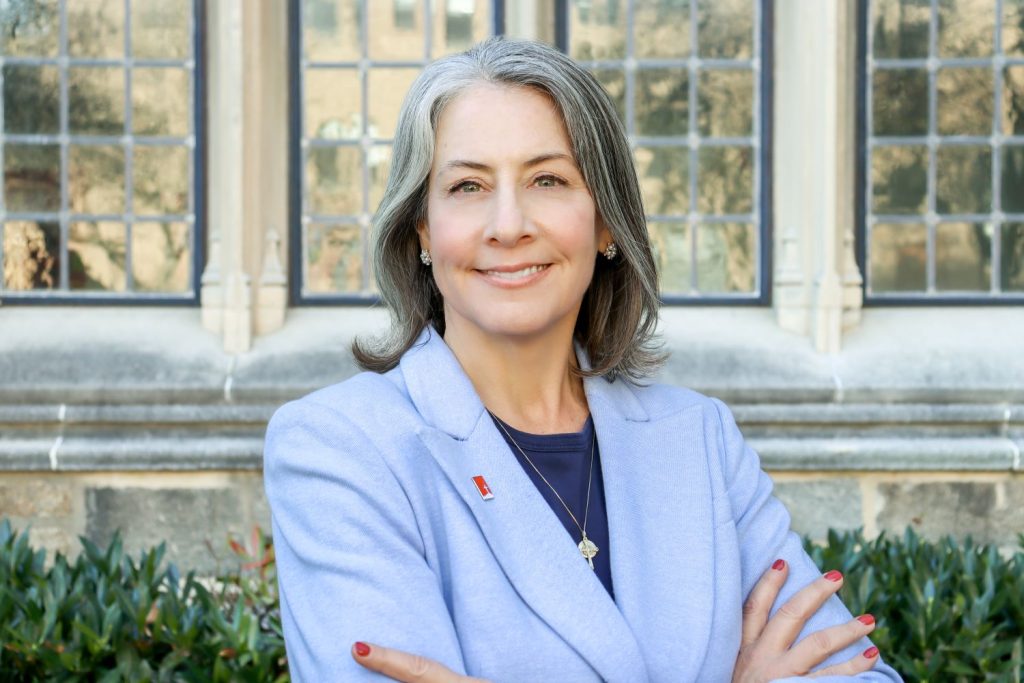
Krisanne Vaillancourt Murphy, Catholic Mobilizing Network
Many of us feel the heavy weight of uncertainty and even fear about what is to come with the next administration. On the campaign trail, President-elect Trump spoke about expedited executions and expansions of death sentences. His first term included 13 federal executions, so the outlook of ending the immoral and failed practice of capital punishment in the United States can feel grim.
In these challenging, uncertain times, it is providential that we are about to journey as Pilgrims of Hope through Jubilee 2025, a year of favor that calls us to reestablish a proper relationship with God and each other through liberation, conversion, and reconciliation.
As a national Catholic organization, we are a people of faith and hope. We have spent months preparing for the year of Jubilee 2025, a time when the Holy Father Pope Francis has called for “forgiveness, reconciliation, and an end to every form of death penalty.” Heeding his exhortation, we have mobilized thousands in our national Catholic network to petition President Biden—in the spirit of mercy and the kind of justice that upholds the dignity of all life, no matter the harm one has caused or suffered—to commute the sentences of all 40 men currently on federal death row. (On December 23, 2024, Biden commuted the sentences of 37 individuals on federal death row).
My prayer for our nation is that we have the courage to recommit ourselves to dismantling the structures that perpetuate a culture of death and to building up a culture of life. Ending the system of capital punishment is my constant prayer because it is the tip of the iceberg on the failed criminal legal system, and it causes an incredible amount of suffering in this country.
I have just returned from Rome, where I was invited to speak about the Holy Father’s World Day of Peace message, which includes a call to end the death penalty. His timely letter invites each of us to help create the conditions where forgiveness might be possible. We know the death penalty does not deter crime or make communities safer. Like the state systems, the federal death penalty system is broken. So we must keep praying and advocating and educating and sharing restorative practices until this system of death is dismantled and our communities flourish amid a culture of life.
Here are concrete actions that anyone can take right now:
- Become an Advocate for Mercy. Simply put, Catholic pro-life witness has the potential to halt executions and save lives. That’s why we’re harnessing the power of Catholic advocacy to speak out against every impending execution in the United States.
- Join Our First Friday Prayer Vigils. On the First Friday of each month, CMN invites you to a virtual prayer vigil, a sacred space to lament upcoming executions and bear witness to the sanctity of all human life. Join us to stand in solidarity with people facing execution, their victims, and all who are impacted by the unjust system of capital punishment.
- Explore our Conversations in Communion formation program that equips Catholics to introduce the restorative practice of circle process in their parishes and ministries. Now more than ever, we need Catholics who are prepared to facilitate conversations of deep listening and discernment that are guided by the Holy Spirit.
Header image: Unsplash/Koshu Kunii


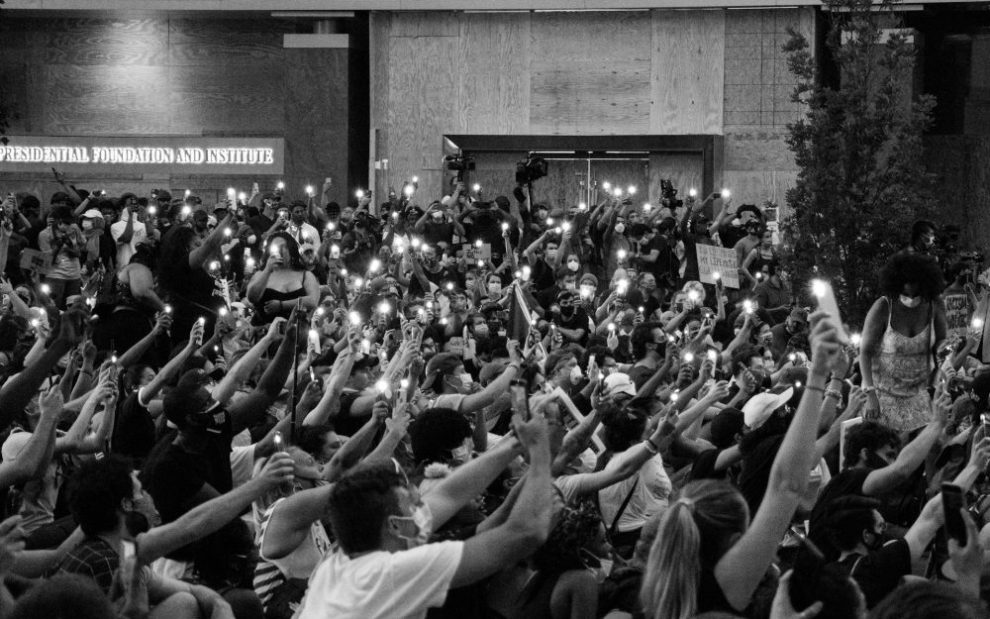












Add comment